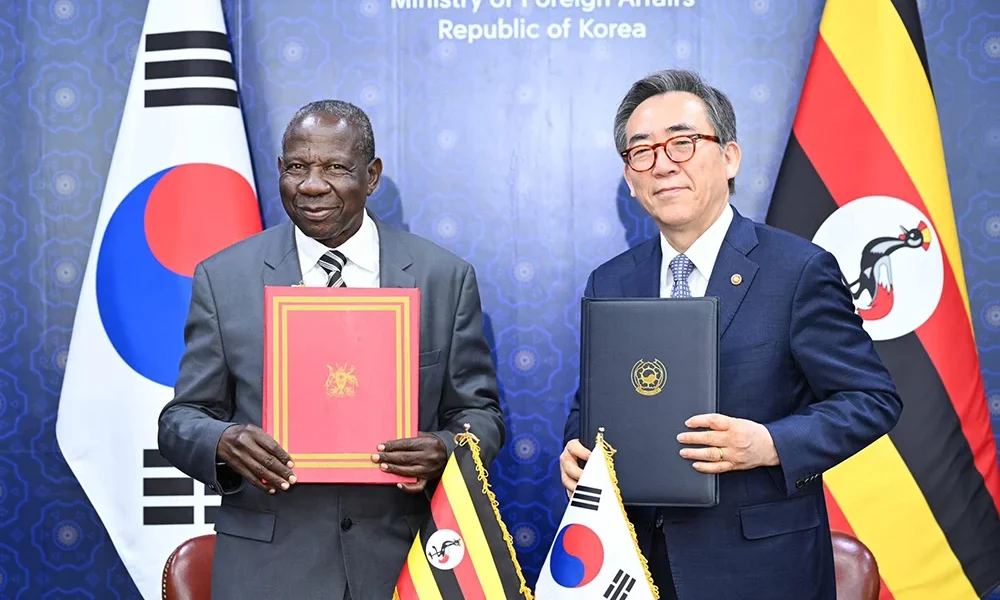
IN a significant move to bolster its infrastructure, Uganda has signed an agreement with South Korea for a $500 million loan. The loan, aimed at financing critical infrastructure projects in the East African nation, was announced by Uganda’s finance ministry on Thursday.
The Export-Import Bank of Korea (EXIM Bank) will provide the loan, according to a post by the ministry on X (formerly known as Twitter). While specific details on the allocation of funds were not disclosed, Uganda predominantly uses such loans for road and energy projects.
Uganda’s Finance Minister, Matia Kasaija, expressed optimism about the agreement, stating, ‘This partnership with South Korea is a testament to our commitment to improving Uganda’s infrastructure and fostering economic growth.’ He signed the agreement with South Korea’s Minister of Foreign Affairs, Cho Tae-Yul, on the sidelines of the Korea-Africa summit in Seoul.
However, this new credit facility is expected to add to Uganda’s escalating debt concerns. Last month, Moody’s downgraded Uganda’s credit rating, citing ‘diminished debt affordability’ as a primary reason. As of December 31, Uganda’s public debt stood at $24.6 billion, largely driven by extensive infrastructure spending.
Despite these challenges, Minister Kasaija remains optimistic. ‘We are aware of our debt situation, but we believe that strategic investments in infrastructure will pay off in the long run, enhancing our economic resilience,’ he said.
South Korea’s Minister of Foreign Affairs, Cho Tae-Yul, highlighted the importance of the partnership. ‘South Korea is committed to supporting Uganda’s development goals through sustainable infrastructure projects. This loan signifies our enduring friendship and cooperation,’ Cho remarked.
As Uganda navigates its financial landscape, the infusion of $500 million from South Korea represents both an opportunity for growth and a reminder of the delicate balance needed to manage national debt.













